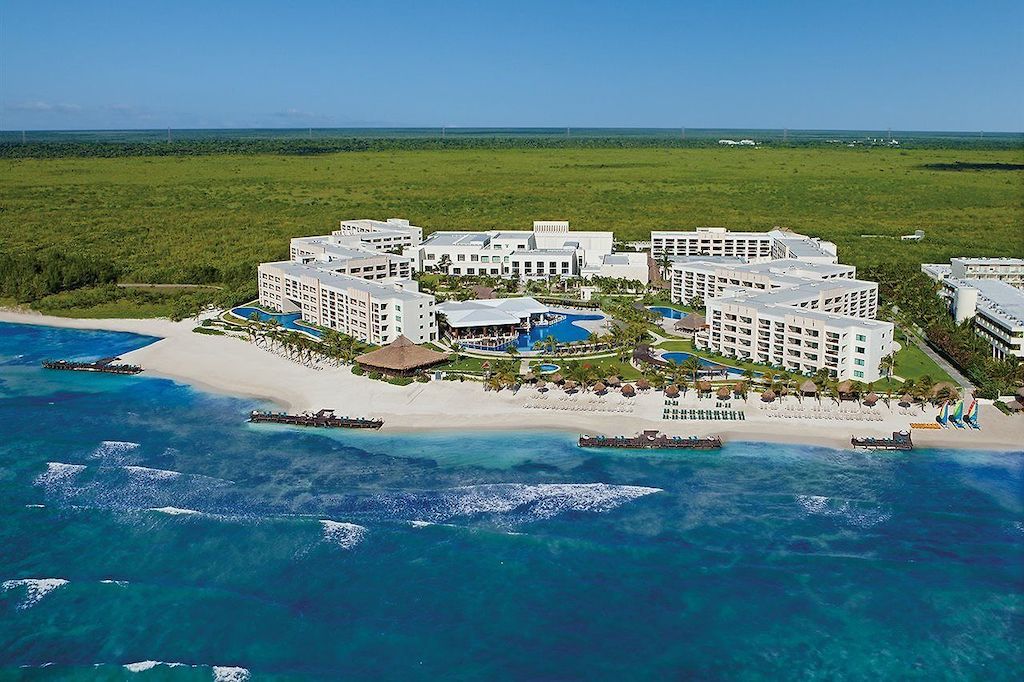Just days after Hyatt closed its $2.6bn acquisition for Playa Resorts, it sold the hotels for $2bn – but why?

Hyatt Buys Playa Resorts, And Then Immediately Sells Playa Resorts… Kind Of
Nearly as soon as the stories were published regarding Hyatt’s purchase of Playa Resorts and its two dozen properties, the hotel chain pulled the rug out and flipped the underlying real estate, maintaining the management and marketing of most of the properties:
“Hyatt Hotels said on Monday it has agreed to sell the real estate portfolio owned by Playa Hotels to Tortuga Resorts for $2 billion, as the U.S. hospitality chain seeks to strengthen its asset-light business.
Hyatt had entered into a deal to buy Playa, which operates 24 high-end, all-inclusive resorts across Mexico, Jamaica and the Dominican Republic, for $2.6 billion including debt in February.” – Reuters
“Once the deal closes, which should be sometime before the end of 2025, Hyatt will still manage 13 of the 15 properties (two of the properties are under separate contractual agreements), but it will no longer own them.
The Tortuga deal essentially transforms the $2.6 billion acquisition of Playa, announced in February, into a $555 million deal for Hyatt to manage the Playa resorts.” – Travel Market Report
Asset-Light Focus
Hyatt, like all major hotel brands, are mostly marketing and branding experts with the ownership of the property itself falling on other investors. This “asset-light” approach keeps more money in the bank for expansion opportunities, and allows for better profit models than actually owning and operating hotels. If the airlines could find a way to just be loyalty programs where all of the profit is, and contract out flying to entities that wanted to own, operate, and maintain aircraft, they’d do this too. That would be a far more difficult approach, however, as you’d need a very large entity to take on such large networks. In the hotel space, a single owner/operator can handle the mortgage, taxes, labor, and service, while the brand is able to benefit from marketing the property and charging a premium for its services.
Inexpensive or Expensive Expansion Model?
With a net cost of $555MM but marketing agreements for the brands, it begs the question, is this an inexpensive expansion model or a really expensive one? Had Playa been more focused on competing products rather than Hyatt brands, it might have made more sense. For example, if Hyatt was able to convert 20 Marriott all-inclusive resorts to Hyatt flags the future revenue would be new to the brand while also reducing the impact and footprint of a competing brand. But with the vast majority already part of the Hyatt ecosystem, how much value could this represent? The cost average per resort was $42.6MM meaning that if there is a 20-year contract in place, each year Hyatt would have to earn more than $2.16MM/property than they are now already flagged to Hyatt.
The thought at the close of the deal was that Hyatt would keep the properties under its umbrella like it did for ALG when it secured, kept, and grew brands like Dreams, and Secrets. While it is in keeping with their asset-light model, the math must have been clear that it was cheaper to buy the management contracts but sell ultimate ownership of the properties off to another bidder.
Conclusion
If managing the properties directly generates an excess to that number, this is a terrific way to expand at a low cost basis, but as they were already within the brand primarily, it’s unclear just how beneficial this will be. As a model going after property groups flagged by other brands, this would be an amazing strategy and could help Hyatt further expand its footprint in meaningful ways.
What do you think?




When Hyatt announced that it was purchasing Playa I was torn. On one hand Hyatt has way oversubscribed to all-inclusives already and the last thing they needed to do was continue to ignore full service hotels that made Hyatt a success in the first place in favor of their new favorite toy. On the other hand it was greatly cheering to see Hyatt actually put some skin in the game by purchasing properties, giving the company more control and accountability towards the final product. It showed an enduring investment rather than just getting rid of hotels then managing them.
Then Hyatt dumped the properies it just bought. To me this makes little sense. Hyatt already (presumably) had long term management agreements in place with most of these hotels. Why buy something only to sell it immediately for less? The only conceivable reason I can think of for Hyatt to do this is that the Playa contract was nearing its’ end and Hyatt was going to lose the resorts if it didn’t do something drastic like this.